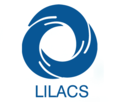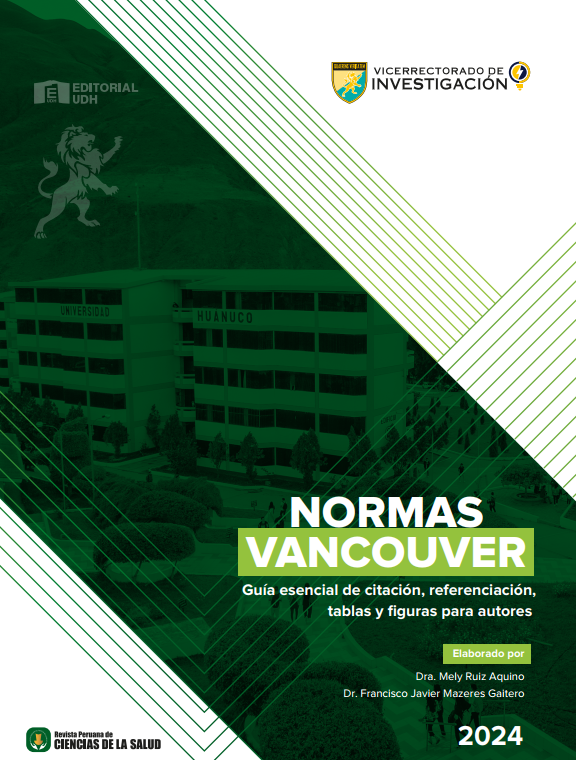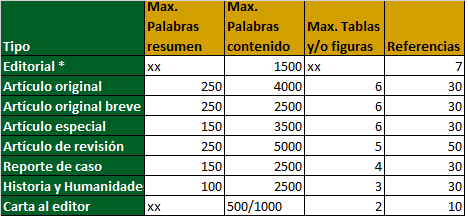Alfabetización en salud y adherencia al tratamiento de enfermedades crónicas en un centro de atención primaria
DOI:
https://doi.org/10.37711/rpcs.2022.4.3.382Palabras clave:
alfabetización en salud, enfermedad crónica, adherencia al tratamiento, hipertensión arterial, diabetes mellitusResumen
Objetivo. Evidenciar la relación entre el grado de alfabetización en salud y la adherencia al tratamiento de enfermedades crónicas en un centro de atención primaria. Métodos. Estudio transversal-analítico-observacional; se tomó a 326 pacientes con diagnóstico de hipertensión arterial o diabetes mellitus, entre el 1 de diciembre del 2020 y el 27 de marzo del 2021. Se aplicó cuestionarios para medir el nivel de alfabetización en salud, así como la adherencia al tratamiento farmacológico y no farmacológico. Se compararon estadísticamente los resultados con la prueba de Chi-cuadrado, para evaluar la asociación entre el grado de alfabetización en salud y la adherencia al tratamiento en pacientes con hipertensión arterial (HTA) y diabetes mellitus (MD). Resultados. El 51,84 % tan solo tenía HTA, el 19,02 % DM y el 29,14 % tanto HTA como DM. El 69,3 % tenía una alfabetización sanitaria sufciente, mientras que en el 30,7 % fue inadecuada. El 25,2 % de los pacientes son adherentes al tratamiento (farmacológico y no farmacológico), mientras que el 74,8 % no tienen buena adherencia al tratamiento. El 43,9 % de los pacientes tienen buena adherencia al tratamiento farmacológico, lo cual se encuentra asociado a la edad (sig. = 0,011) y el nivel socioeconómico (sig. = 0,025). El 49,7 % tenía buena adherencia al tratamiento no farmacológico y no se encontró asociación con alguna característica sociodemográfca. Se demostró asociación entre la alfabetización en salud y la adherencia al tratamiento (sig. = 0,011). Conclusiones. Existe una relación signifcativa entre el nivel en alfabetización en salud y la adherencia al tratamiento.
Descargas
Referencias
World Health Organization. Health literacy. The solid facts. Regional Office for Europe: Copenhagen; 2013.
Organización Mundial de la Salud. Nombre del documento [Internet]; 2018 [Consultado 2018 Jun 1]. Disponible en: https://www.who.int/es/news-room/factsheets/detail/noncommunicable-diseases.
OMS. “Organización Mundial de la Salud”. [En línea].; 2017 [citado 2017 Set. 18]. Disponible en: https://www.who.int/es/news-room/detail/18-09-2017-who-launches-new-ncds-progress-monitor.
Perú. Instituto Nacional de Estadísticas e Informática. Resultado Definitivos de los Censos Nacionales 2017 [Internet]. Lima: INEI; 2018 [Consultado 2022 enr 21]. Disponible en: https://www.inei.gob.pe/media/MenuRecursivo/publicaciones_digitales/Est/Lib1544/
Perú. Dirección Regional de Salud Piura. Piura [Internet]. Piura: DIRESA; 2018 [Consultado 2018 nov 21] Disponible en: https://diresapiura.gob.pe/diresa-piura/9315-2/.
Ortega JJ, Sánchez D, Rodríguez ÓA, Ortega JM. Adherencia terapéutica: un problema de atención médica. Acta Médica Grupo Ángeles. 2018; 16(3).
Rosas G, Romero CA, Ramirez E, Málaga G. El grado de alfabetización en salud y adherencia al tratamiento en pacientes con hipertensión arterial en un hospital nacional de Lima, Perú. Rev Peru Med Exp Salud Publica. 2019; 36(2): 214-221.
Figueroa CS, Otzen T, Figueroa V, Candia J. Alfabetización en salud y adherencia farmacológica en adultos mayores con enfermedades crónicas, de la ciudad de Temuco. Rev Med Chile. 2020 Mayo; 148(653-656).
Kickbusch I, Maag D. Health Literacy. En: Heggenhougen K, Quah S, editores. International Encyclopedia of Public Health. San Diego: Academic Press; 2008. pp. 204-11.
Montesi M. Alfabetización en salud: revisión narrativa e interdisciplinar de la literatura publicada en biomedicina y en biblioteconomía y documentación. Rev Cub de Inf en Cienc Salud. 2017 jul- set; 28(3).
Sørensen K, Pelikan J, Röthlin F, Ganahl K, Slonska Z, Doyle G, et al. Health literacy in Europe: comparative results of the European health literacy survey (HLS-EU). EUPHA. 2015 Dic; 25(6): 1053-1058.
Nolasco A, Barona C, Tamayo-Fonseca N, Irles MÁ, Más R, Tuells J, et al. Alfabetización en salud: propiedades psicométricas del cuestionario HLS-EU-Q16. Gac Sanit. 2018; 32(6).
Fernández MJ, Alonso A, González E, Gestal JJ, Díaz GJ. Alfabetización en salud en pacientes con diabetes tipo 2: un estudio transversal con el cuestionario HLSEU-Q47. SEMERGEN. 2019; 45(1): 30-36.
Lopes I, Pinto M, Barbosa Lopes C, Batista A, Vancini Campanharo R. Alfabetización en salud y adherencia al tratamiento para pacientes con insufciencia cardíaca. Rev Esc Enferm USP. 2019 Jul; 53: e03447.
Radax JF, Mora Verdugo MA, Salgado Castillo CM. Estudio Transversal: Alfabetización de Salud en Once Parroquias Bajo la Lupa, Cuenca - Ecuador, 2016. Rev Med HJCA. 2018; 10(3): 220-227.
Vílchez R, Quiliano R, Canales N, Solano Ch. Factores Demográfcos Asociados con el Conocimiento Sobre Salud en una Muestra de Mujeres de la Ciudad de Lima (Perú) en 2008: Resultados del Cuestionario SAHLSA-50. Rev. Colomb. Obstet. Ginecol. 2009; 60(3): 223-229.
Macha LF, Samanamú AE, Rodriguez DC. Alfabetización sanitaria y factores relacionados en pacientes que acuden a consulta externa de Medicina Interna en un Hospital Nacional en Lima, Perú. Revista de Salud Pública. 2017; 19(5): 679-685.
Deriaz J, Fernández D. Alfabetización sanitaria: evaluación del conocimiento y comprensión sobre temas de salud mediante un instrumento validado y factores relacionados en pacientes que acuden a consulta externa en una clínica privada en Lima Perú 2017 [Tesis para obtener el grado de bachiller en Medicina Humana]. Lima: Universidad Peruana Cayetano Heredia, Lima;
Nacionales 2017 [Internet]. Lima: INEI; 2018 [Consultado 2022 ener 23]. Disponible en: https://hdl.handle.net/20.500.12866/935
Hidalgo Cruz I, Valero Delgado. Alfabetización sanitaria evaluada mediante un instrumento validado y factores relacionados en pacientes hospitalizados en los servicios de Medicina Interna en un Hospital Nacional en Lima-Perú 2018. Tesis para obtener el grado de Bachiller en Medicina Humana. Lima: Universidad Peruana Cayetano Heredia, Lima; 2018. Pendiente publicación. [Consultado 2022 ener 24] Disponible en: https://hdl.handle.net/20.500.12866/1463
Huamaní Condori XP. Nivel de Alfabetización Sanitaria en Pacientes Hospitalizados en el Servicio de Medicina Interna del Hospital Regional Honorio Delgado Espinoza, Arequipa – 2019. Tesis Para optar el Título Profesional de Médica Cirujana. Arequipa: Universidad Católica de Santa María; 2019. Pendiente publicación. [Consultado 2022 ener 24] Disponible en: http://tesis.ucsm.edu.pe/repositorio/handle/UCSM/8710
Asociación Peruana de Empresas de Investigación de Mercados. Niveles Socioeconómicos 2018 [Internet]. Lima; 2018 [Consultado 2022 feb 22]. Disponible en:
http://apeim.com.pe/informes-nse-anteriores/
Manzini JL. Declaración de helsinki: principios éticos para la investigación médica sobre sujetos humanos. Acta bioeth. 2000 Dic; 6(2).
Konfino J, Mejia R, Majdalini M, Perez E. Alfabetización en salud en pacientes queasisten a un hospital universitario. Medicina. Buenos Aires, 2009; 69(6): 631-34.
Ariza A, Lanteri ME, Cícero CY, Pérez A, Puchulu FM, Mejía R. Healthliteracyand diabetes control in patients attending a university outpatient clinic in Argentina. Medicina (B Aires). 2017; 77(3): 167-172. 2017.
Apolinario D, Braga R, De Castro M, Regina Miksian, Busse, Alexandre Leopold, Campora, Flavia, Brucki, Sonia, & Lee, Shoou-YihDaniel. (2012). Short Assessment of Health Literacy for Portuguese-speaking Adults. Rev Saúde Pública, 46(4), 702-711. Epub July 10, 2012. https://dx.doi.org/10.1590/S0034-89102012005000047
Mathes T, Jaschinski T, Pieper D. Adherence influencing factors a systematic review of systematic reviews. Arch Public Health. 2014; 72(1): 37. doi: 10.1186/2049-3258-72-37
Dilla T, Valladares A, Lizán L, Sacristán JA. Adherencia y persistencia terapéutica: causas, consecuencias y estrategias de mejora. Aten Primaria. 2009 May; 41(6).
Mayo T, Mouton C. Examining the Association Between Health Literacy and Medication Adherence Among Older Adults. Health Commun. 2018 Sep; 33(9). https://pubmed.ncbi.nlm.nih.gov/28636404/

Publicado
Número
Sección
Licencia
Derechos de autor 2022 Luis Fernando Cieza-Arámbulo, Ángel Enrique Zapata-Bayona

Esta obra está bajo una licencia internacional Creative Commons Atribución 4.0.





















